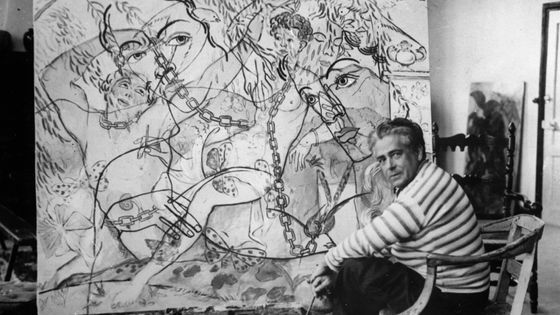
From the 1910s to the 1950s, Francis Picabia distinguished himself by his ability to fit into a multitude of artistic currents but also different practices, such as painting and poetry. Anne Berest and Bernard Marcadé are the guests of the Book Club to discuss his rich career, evoking in particular the important place of his first wife and muse Gabriële.
Anne Berest is a novelist and screenwriter. She is the great-granddaughter of Gabriële Buffet-Picabia and Francis Picabia. After studying theater, she devoted herself to writing novels, adaptations for the theater and screenplays. After several noticed novels (Her father’s daughter at Seuil in 2017 or The Patriarchs at Grasset in 2012), she published with her sister Claire Berest a biography of Gabriële Buffet-Picabia, soberly titled Gabrielle (Stock). Éditions Seghers has just published Letters & poems to Gabriële by Francis Picabia, for which Anne and her sister Claire wrote the preface, and which brings together unpublished writings by Picabia addressed to his wife and inspiration.
Art is matter
59 mins
Bernard Marcade is an art historian, art critic and exhibition curator. He is the author of numerous biographical works on figures such as René Magritte, Marcel Duchamp as well as on contemporary artists. In 2021, he publishes Francis Picabia, rastaquouèrea biography whose title is inspired by Picabia’s emblematic book, Jesus Christ Rastaquouère (1920). He explores the life and work of the man whom his artist friend Marcel Duchamp describes as follows: “the greatest representative of freedom in art, not only against the slavery of the academies, but also against submission to any dogma whatsoever.”
Art is matter
58 mins
Francis Picabia (1879-1953) is a painter, draftsman but also writer and poet, belonging mainly to the Dada and then Surrealist movement. His artistic talent was revealed early on, and he exhibited from the age of 20 at the Salon des Artistes Français, then at the Salon d’Automne and the Salon des Indépendants. His early career is part of the Impressionist movement. In 1909, he married Gabriële Buffet, found new inspirations and turned to modern art, successively embracing different currents of the time: Fauvism, Futurism, Cubism…He spent part of the year 1913 in New York, a stay that will strongly mark his work. The following years, marked by the war, he took up poetry. After the war, he became intensely involved in the Dadaist movement of the 1920s, especially through poetry, with Unique Eunuch And Jesus Christ Rastaquouère. His prolific career was then shared between Paris and the Côte d’Azur, between painting, poetry and literature.
Sound clips
– Voice note from our reader Estelle (@lecture.et.demesure) about Francis Picabia’s letters to Gabriële
– Voice note from our reader Christian (@tristanhylaire) about Francis Picabia
Find us on Twitter using the hashtag
#bookclubculture and on Instagram at
@bookclubculture_
